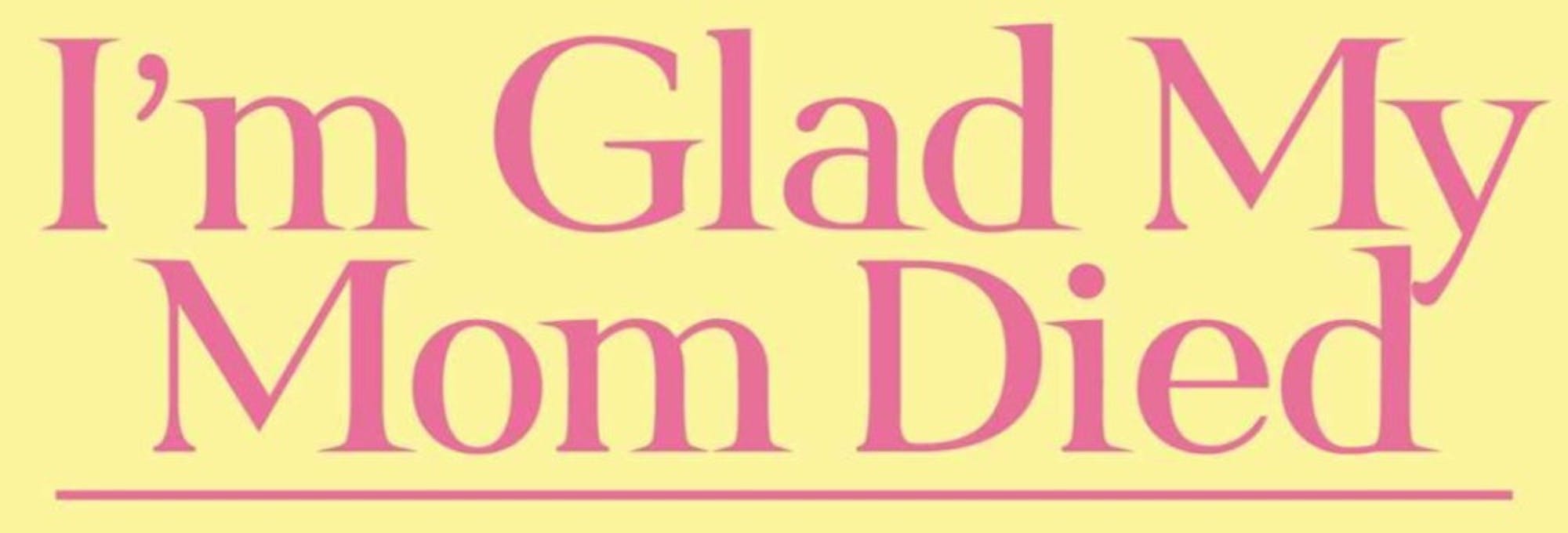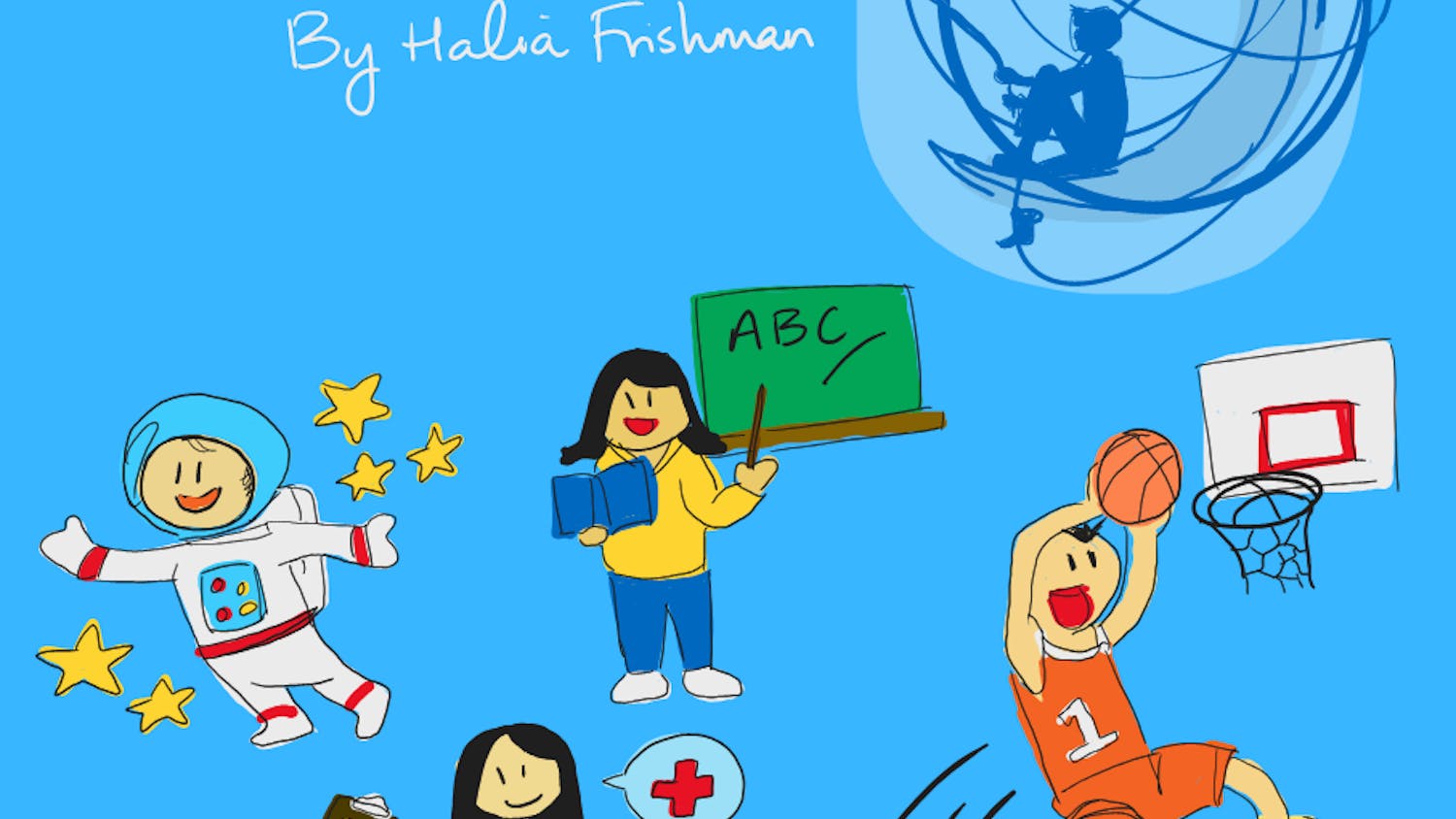Content warning: This article discusses eating disorders, obsessive-compulsive disorder, emotional and verbal abuse and sexual harassment.
Gen Z knew her as Sam Puckett, the rambunctious, bad-tempered loudmouth from the hit Nickelodeon television show “iCarly” (2007–2012). This would be the name that followed Jennette McCurdy around for the majority of her professional adult life; a name that McCurdy grew to detest. As seen with an array of child actors who were exploited for their talents at a young age, what audiences see on-screen can be vastly different from their lived experiences. McCurdy decided to swap out her script for a pen and paper and detailed the horrors and harsh realities behind the life of a star in Hollywood. “I’m Glad My Mom Died” (2022), a memoir that spans from her early childhood to her teenage years and twenties, is McCurdy’s literary debut. After nearly two decades of exploitative labor taken from the star, McCurdy has found her true vocation in writing.
As a child, McCurdy recalls that it was her mother’s idea for her to begin acting. McCurdy’s mother, Debra, introduced McCurdy to open-call auditions for commercials at a young age. Reflecting on when her mother wanted to sign McCurdy with an agent to jump-start her career, McCurdy writes, “Mom wants this more than anything, not me. This day [my audition for the acting agency] was stressful and not fun, and if given the choice, I would choose to never do anything like it again.” This would only be the start of the stress and obligation McCurdy felt toward her mother.
McCurdy recounts an instance when she tried to quit acting and her mother reacted violently: “She bangs on the steering wheel, accidentally hitting the horn. Mascara trickles down her cheek. She’s hysterical, like I was in the Hollywood Homicide audition. Her hysteria frightens me and demands to be taken care of.” McCurdy decided to hide her desire to quit in order to appease her mother. Effectively, McCurdy highlights the immense pressure she felt to placate her mother by continuing to act.
In addition to the pressure her mother placed on her to continue acting, McCurdy details the struggles she faced with obsessive-compulsive disorder and eating disorders. She recounts that when she began to go through puberty, she was nervous that she would grow too large for her mother’s liking. McCurdy asks her mother what she can do to stop growing, and her mother replies, “there’s this secret thing you can do … it’s called calorie restriction.” Soon after her mother put her on a diet plan, McCurdy was proud every time she would eat half of her allotted portion because she was “shrinking twice as fast.”
This type of mindset toward food would only further worsen as McCurdy grew older, with her aversion to food developing into bulimia, marked by periods of time where she would binge and then purge the food she ate. It wasn’t until after her mother died that McCurdy was able to reckon with this destructive cycle that had been implanted and perpetuated by her mother. Despite the heaviness in nature of such content, McCurdy effectively depicts the root and recurrence of eating disorders, but she does not allow herself to become victimized by her struggle. By humanizing herself and uncovering the thoughts and emotions she tied to food, it is evident that she is greater than her eating disorder, which can provide hope to those in similar situations.
Outside of physical and mental illnesses, McCurdy’s relationship with Nickelodeon is explored. She recounts uncomfortable, sexually suggestive encounters with an executive she calls “The Creator,” as well as dismay and frustration with preferential treatment her co-star Ariana Grande received on the set of their show “Sam & Cat” (2013–2014).
Despite being exploited throughout her young career, McCurdy managed to transcend her restraints, freeing herself from her acting agents and film obligations and shifting her life toward intentional and meaningful living: therapy and writing. Working with a therapist on her eating disorder helped her reconstruct her relationship with food. Writing brought her an outlet to process grief and trauma after her mother died of cancer while she was on Nickelodeon. McCurdy took the lemons life gave her and decided to make lemonade for herself and others. This memoir acts as a beautiful testament to resilience and perseverance. McCurdy displays an immense amount of strength and tenacity to emerge stronger despite her upbringing. “I’m Glad My Mom Died” is a must-read book and an impressive body of nonfiction for a debut work.






